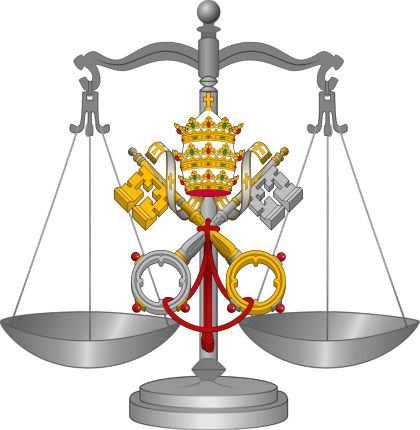Seven Quick Takes: Most Marriages are Invalid?
Devra Torres | Jun 17, 2016 | 32 cmts

Pope Francis suggested on Thursday that most marriages today are invalid. He didn't say it from the Chair of Peter, and the official transcript has replaced "a great majority" with "some," (though it's not clear whose idea that was). But still!
Did he really say it? It seems he did. Was it a good idea to say it now, in the context of "impromptu remarks"? A moot point, and people can disagree. Does it open a giant new can of worms? I think we can all concur on that one.
Here's a small sampling of those worms, in the form of reflections that have been popping into my head since I read about it:
---1---

But! But! Won't this throw everything into chaos? People are befuddled enough as it is about the difference between a declaration of nullity and a decree of divorce. Plenty already think nullity is just divorce in Catholic-speak, and plenty more are convinced that annulments are handed out like candy to the rich and famous and callously denied to the hoi polloi. Not to mention rampant misconceptions about separation of bed and board in cases of abuse, about civil divorce allowed by the Church for legal purposes, who is and isn't barred from Communion, the legitimacy of the children...the list goes on. Why make things even worse?
---2---
But if it's true--if many or most of us believe we're entering into marriage, but really aren't--isn't it better to live in the truth than to remain deluded? Isn't that always better? Should we trade in the truth for false peace and stability?

That can't be right. On the other hand, there's more than one way to lead people to the truth. There's no One Weird Trick to get people from Point A ("as long as we both shall love") to Point B (a full and conscious awareness of what-all you're getting yourself into when you say "I do"). And there's a difference between having a grasp of marriage sufficient to enter into a valid one and the kind of deep theoretical or experiential understanding gained by a canon lawyer or a 50-years-married couple. Not every valid marriage is a happy embodiment of the divine plan for spousal communion. That doesn't mean it's no marriage at all.
---3---
It's interesting that Pope Francis has fixed on the impediment of lacking a proper understanding of permanence and commitment. It's easy enough to understand some impediments: that a marriage can be declared null if one party is concealing a crazy wife in the attic (like Mr. Rochester in Jane Eyre), or was defrauded by the mail-order-bride company into marrying a different woman than the one he had in mind (like the Patriarch Jacob, whose father-in-law substituted his intended bride's sister on the wedding night). Something is clearly off from the beginning: what appeared to be a marriage is not.
---4---
But this is something more subtle. In fact, there's a whole host of more subtle impediments, spelled out by canon law (here's a startlingly extensive list of them). If this list is accurate, it seems very plausible that most marriages don't rise to the level of validity. (And the list predated this papacy.) The Church adheres to a very lofty, very personalist standard of consent. The degree of knowledge, will and freedom required is surprisingly high. The absence of all sorts of pressure, deception, and manipulation is also demanded.  According to this, not only would the marriages of Jacob and Leah, and Mr. Rochester and Jane Eyre, have been invalid, but so would all shotgun weddings, all arranged marriages, and all marriages of convenience. So would all marriages in which even one of the parties was primarily seeking citizenship or to legitimize a child. Or those in which consent was conditional upon some past, present, or future quality or circumstance, or if one party had lied about an arrest record or a debt. Or if one, even implicitly, was intending to exclude fidelity, permanence, or procreation.
According to this, not only would the marriages of Jacob and Leah, and Mr. Rochester and Jane Eyre, have been invalid, but so would all shotgun weddings, all arranged marriages, and all marriages of convenience. So would all marriages in which even one of the parties was primarily seeking citizenship or to legitimize a child. Or those in which consent was conditional upon some past, present, or future quality or circumstance, or if one party had lied about an arrest record or a debt. Or if one, even implicitly, was intending to exclude fidelity, permanence, or procreation.
---5---
It's curious that now, just when people find "adulting" harder than ever, the standard should be so high.  In an age when grown men spend hours a day playing video games and young adults subsist on ramen well into their twenties, what sense does it make to hold us to such a lofty standard? But in a way it makes perfect sense. As you can read in the "What we mean by Personalism?" section of this website, a new understanding of the person really is characteristic of our age. Parents no longer choose the spouse or the profession of their children; people no longer live in unthinking and automatic solidarity with their ethnic or religious community. Each of us is alive to the need to "act in our own name," and even if, in practice, we're as susceptible to peer pressure and mob mentality as ever, we do have a new understanding of the unrepeatability and inviolability of the person.
In an age when grown men spend hours a day playing video games and young adults subsist on ramen well into their twenties, what sense does it make to hold us to such a lofty standard? But in a way it makes perfect sense. As you can read in the "What we mean by Personalism?" section of this website, a new understanding of the person really is characteristic of our age. Parents no longer choose the spouse or the profession of their children; people no longer live in unthinking and automatic solidarity with their ethnic or religious community. Each of us is alive to the need to "act in our own name," and even if, in practice, we're as susceptible to peer pressure and mob mentality as ever, we do have a new understanding of the unrepeatability and inviolability of the person.
---6---
A papal remark like this can have terrible consequences. Won't people latch onto it as an excuse for divorce, infidelity, and abandonment? Won't we get the idea that the standard of validity is so high that practically nobody attains it anyway--so why try? And the part about faithful but unwed couples having the grace of marriage--what can that do but sow confusion where there's already a surplus?
---7---
On the other hand, wouldn't it be great if it led to more serious marriage preparation? I know places where this is happening, but in most parishes that I've ever heard of, marriage prep consists of a very few sessions, imparted by well-meaning non-experts, timed so that even if any suspicion of an impediment were to turn up, there would be enormous pressure to just plow ahead anyway, because the flowers were already ordered, the reception venue reserved, the tux tailored. The Pope has a point when he brings up the example of the groom who chose a church on the basis of whether it complemented his bride's dress and was close to a particular restaurant. Or the man who wanted to be a priest, but only for ten years. Do most of us have any idea what we're doing?
Addressing the problem of our "culture of the provisional" is much harder than closing our eyes to the obliviousness of prospective brides and grooms, so as not to rock the boat.
But what's the alternative?
What do you think?
* * *
To join the linkup, hosted by Kelly at This Ain't the Lyceum, write a post and link it back to This Ain't the Lyceum, here (following the directions at the bottom of her page).


Comments (32)
Abigail Tardiff
Jun 17, 2016 10:31pm
I was shocked by some of the impediments on the list you link to, especially the one citing canon 1099: "You or your spouse married believing that marriage was not necessarily an exclusive relationship." But I looked up canon 1099, and it says just the opposite:
Can. 1099 Provided it does not determine the will, error concerning the unity or the indissolubility or the sacramental dignity of marriage does not vitiate matrimonial consent.
This makes me not trust the list. Thanks for being cautious about it, and saying "If this list is accurate..."
Jules van Schaijik
Jun 17, 2016 10:59pm
I also read the list but didn't find it shocking. Then I googled for some more information, and came across this document on the EWTN website. It begins by saying that "The presumption of the Church favors marriage and the validity of the matrimonial consent given on the wedding day." I think this presumption is no longer valid. The culture no longer supports it.
About canon 1099, the same document says that "the knowledge of marriage that is needed to marry is truly minimal, and … is presumed in individuals who have reached puberty." But then it adds a counter example: "a man from a polygamous society marries a Christian without realizing that he may not marry again, as he intends to do. He has a factual error regarding the true nature of marriage, one which is at the heart of his consent." Something close to this mindset seems to me to be the norm of today and not the exception.
Perhaps Pope Francis is more in tune with the facts on the ground than the canon.
Devra Torres
Jun 17, 2016 11:45pm
Stellatum, I also found it startling and really should have done a little more research! I see people throwing around statements about how the requirements for validity are very simple--one reporter, in an article about how Pope Francis should resign, says "For a Catholic marriage to be valid all that is needed is the freedom to marry, consent from both parties, and the intention to marry for life and be open to children. That's it." I guess you could say that's accurate, but only if you flesh out the meaning of "freedom" and "consent" to include all the more involved conditions, like "errors about quality," etc. I also hear people talking as if Pope Francis invented extra requirements, when I think their argument is not with him but with canon law.
Devra Torres
Jun 18, 2016 12:01am
Jules, yes, I think presuming such knowledge in those who have reached puberty today is definitely unwarranted. I don't know what effect that has, if any, on canon law's power to bind. So many people labor under "factual error[s] regarding the true nature of marriage"--and it's not just a case of wishful thinking or rationalization, people wanting or pretending to believe that it's OK to do things the easy way. There are so many people who believe that, for example, sterilization, abortion, or divorce are not only permitted but often what a responsible person would do if circumstances warrant it. The Judeo-Christian moral code is considered obsolete, but no coherent substitute, even an evil one, has really been created to replace it, and people are making it up as they go along, with nothing to go on but conventional wisdom and a trust in their own confused instincts. See, for example, the "Dear Prudence" advice column at Slate.com.
Sam Roeble
Jul 13, 2016 10:37am
Another aspect of the subject in question, besides the mutual self-giving/receiving in freedom of the complimentary spouses, is Faith. The editors of Communio Magazine published an extensive study of whether or not "minimum fidei" or "personal faith" is needed for the validity of Sacramental marriage above and beyond proof of baptism. Their conclusion was "no", since participation in the Sacrament alone (whether subjectively active in participation or not) implies faith. They also argue that JPII proposed this same logic in Familiaris Consortio.
Sam Roeble
Jul 13, 2016 10:38am
*by subjectively active I mean "fully conscious of the meaning of, etc."
Katie van Schaijik
Jul 13, 2016 11:06am
Sam Roeble wrote:
...participation in the Sacrament alone (whether subjectively active in participation or not) implies faith. They also argue that JPII proposed this same logic in Familiaris Consortio.
Sam Roeble wrote:
*by subjectively active I mean "fully conscious of the meaning of, etc."
Isn't this circular reasoning? I mean, it sound to me like the logic assumes that the Sacrament takes place, which is the point in question.
As I understand the teaching, a person who lacks faith can contract a valid marriage. And a lack of faith can be a real impediment to the marriage contract, depending on the case.
In other words, the fact that a person lacked a deep personal faith at the moment he said his vows doesn't by itself mean that no marriage took place. But, in a given case, a lack of faith may be the decisive factor in an annulment.
Another way of saying it is that there are different kinds of lacks. One kind is compatible with real marriage, another kind leads to a sham marriage.
Katie van Schaijik
Jul 13, 2016 11:13am
To be more concrete:
One kind of lack is the lack of innocent not-having. A person lacks faith because he has never really "heard" the gospel, never consciously experienced God's grace in his life, but is objectively open to it.
Another person may be struggling painfully with an inability to believe, though he sincerely wants to believe.
Another person may be laboring under errors and misconceptions that make belief temporarily impossible.
Another person may be deeply cynical and dishonest and deliberately closed to grace.
Another person may be pretending to have faith, because he thinks it's what expected, but he doesn't really have it and doesn't care. At the bottom of his apparent vow is a lie and a manipulation, though he may be unaware of it himself at the time.
For some people, dishonesty with self and others is a deeply ingrained habit of being.
Sam Roeble
Jul 13, 2016 12:23pm
Sam Roeble
Jul 13, 2016 12:33pm
Notice JPII's writing contains no hermeneutic of suspicion or excessive scrutinization--he trusts in the grace of the Primordial Sacrament vs. Moses who allowed divorce on account of hardness of heart
Katie van Schaijik
Jul 13, 2016 12:56pm
Sam Roeble wrote:
--he trusts in the grace of the Primordial Sacrament vs. Moses who allowed divorce on account of hardness of heart
This again assumes the point in question, namely, whether the Sacrament has in fact taken place. I trust the grace of the Sacrament. But I also believe, with the Church, that not all apparent marriages are actually sacramental marriages.
I agree with what JP II says in the quote above, and I think it accords with what I said above too.
But it assumes a case where there is a irrevocable conjugal commitment to live in indissoluble love and unconditional fidelity. In other words, the Holy Father is saying, where all those elements are present, an imperfectly developed personal faith doesn't prevent marriage.
But there may well be cases (as the present Holy Father suggests) where the particular "lack of faith" induces an attitude that does prevent a person from making a genuine irrevocable commitment.
Devra Torres
Jul 13, 2016 1:14pm
The Familiaris Consortio passage makes a lot of sense to me--the hesitancy to get into the business of evaluating the "level of faith" of the prospective spouses, as well as the clear-eyed concern about the danger of calling into doubt the validity of marriages already celebrated.
Katie van Schaijik
Jul 13, 2016 1:37pm
I'm thinking about the way Church teaching develops in time and the way encyclicals and other papal documents have to be interpreted in two directions, as it were. That is, the recent ones have to be interpreted in light of the older, and the older have to be re-interpreted in light of the newer. (Familiaris Consortio, for instance, changed the reading of Casti Connubii. Vatican II, as Pope Benedict XVI put it, "completed" the otherwise incomplete Vatican I.)
And all of them are constantly interpreted by the sensus fidelium.
I am with Jules in thinking that the cultural changes of the last 30 years—including a massive increase in the number of divorces and annulments, as well as dramatic developments in the field of psychology in terms of understanding internal constrictions on freedom, may well justify Pope Francis' concern that quite a large portion of marriages aren't, in fact, true marriages.
What to do about it, is, as the Pope says, an extremely vexed question.
Sam Roeble
Jul 19, 2016 11:36am
Katie van Schaijik
Jul 19, 2016 12:00pm
He didn't retract it. Rather, he approved an official alteration. "The majority" became "a portion." The alteration doesn't mean the original statement was wrong. It only means (as I read it) that he afterwards agreed that "a majority" was perhaps too strong.
To my mind, the fact that the Vicar of Christ would say something like that means something. He is clearly speaking from long experience as a pastor. In theology, experience has priority over documents. Documents (even sacred ones) are interpreted (under grace) in the light of experience.
Katie van Schaijik
Jul 20, 2016 8:39am
I took a graduate course on the thought of Wojtyla from Rocco Buttiglione in 1990, around the time he published his book, Karol Wojtyla: the Thought of the Man who became Pope John Paul II.
This morning (thanks to Jules), I read an article of his in l'Observatore Romano: The Joy of Love and the Consternation of the Theologians.
It expresses my own view exactly. There is a profound continuity between JP II and Francis, and between Familiar Consortio and Amoris Laetitia. The superficial discontinuity has to do with changing cultural and historical circumstances.
Doctrines don't change, but the human laws surrounding them do. The fact that divorce is much, much more common now than it was thirty years ago matters.
Sam Roeble
Jul 27, 2016 9:33am
on 7/23 Bishop Paprocki of Illinois clarified Pope Francis' redaction ("a portion" vs. "most") by saying:
"In case of doubt, the validity of marriage must be upheld unless proven otherwise [by Tribunal]"
Sam Roeble
Aug 1, 2016 3:41pm
Katie van Schaijik wrote:
There is a profound continuity between JP II and Francis, and between Familiar Consortio and Amoris Laetitia. The superficial discontinuity has to do with changing cultural and historical circumstances.
When Bergoglio was Arzobispo de Buenos Aires, the continuity was clear--notice his reflections on JPII's Ecclesia de Eucharistia from 2008 (comparing Eucharist to Marriage):
Hay una similitud profunda con esto en la fórmula del sacramento del matrimonio cristiano, en el que los esposos se entregan mutuamente y se prometen fidelidad abrazando –incluyendo, anticipando y concentrando en su sí- todo lo que ocurrirá en la vida: salud y enfermedad, prosperidad y adversidad. A imagen de la Alianza de Cristo que se adelanta en la Eucaristía, los esposos adelantan su amor y lo hacen extensivo a todo, de manera tal que la Alianza sea irrompible.
Even as Archbishop, Bergoglio agreed with mutual subjection and indissolubility.
Sam Roeble
Aug 1, 2016 3:54pm
Or in 2010, when addressing married couples during Lent, Arzb Bergoglio warns (but not despairingly):
Una de las cosas más desgastantes que nos puede suceder es caer en las garras del acostumbramiento. Tanto a lo bueno como a lo malo. Cuando el esposo o la esposa se acostumbra al cariño y a la familia, entonces se deja de valorar, de dar gracias y de cuidar delicadamente lo que se tiene. Cuando nos acostumbramos al regalo de la fe, la vida cristiana se hace rutina, repetición, no da sentido a la vida, deja de ser fermento. El acostumbramiento es un freno, un callo que aprisiona al corazón, vamos “tirando” y perdemos la capacidad de “mirar bien” y dar respuesta.
He even uses the spanish equivalent of "ferment" to describe a marriage in need of renewal and bad habits. But he does not say that the marriage is "invalid"--as though it too should be "thrown away". His experience as a pastor does not succomb to despair in this way...
Katie van Schaijik
Aug 1, 2016 4:12pm
To say that a portion (maybe even most) marriages are invalid is no more despairing than to say that most Catholics are not living their faith, or that whole populations of the world are living without the light of faith, or that millions of people are oppressed or in poverty.
Catholics (least of all this Pope!) don't despair in the face of hard and terrible realities.
Sam Roeble
Aug 1, 2016 4:22pm
Nevertheless, there appears to be a slight "rupture" in his expressions of marriage between the time he was Arzobispo (in continuity w/JPII's teaching) and his recent off-the-cuff remarks. 30years may be thought enough time for change here--but certainly not 6 (2010 to 2016)
Sam Roeble
Aug 1, 2016 4:31pm
I also don't buy into the argument that Bergoglio is less of an intellectual (& more of a Pastor) now than he was as Archbishop. His writings suggest an acute attention to the details of documents of JPII, BXVI and their predecessors: Fides et Ratio, Deus Caritas Est, etc. to name a few. To dismiss him as somehow an uneducated Jesuit (those who receive the most education and formation) is unbelievable. He may be better trained in science (Chemical Technician), but that adds to his intellectual abilities and doesn't dumb them down. He may not be a linguist, but he is very sharp indeed.
Katie van Schaijik
Aug 2, 2016 8:18am
"Not an intellectual", in my sense, doesn't at all mean "uneducated"!! It's a question of mode and occupation. I use it as a synonym for "academic". An intellectual dwells in the realms of books and scholarship and ideas. He speaks that language, as it were. He has those distinctive manners.
My numerous and ongoing post on Pope Francis make plain how much I respect his mind and his deep and broad knowledge of Catholic thought.
And for goodness sake, I nowhere suggested, never mind argued that the Pope is less of an intellectual now than he was as Archbishop!
It is you, not me, who claims a discontinuity between him then and him now. I don't see it. Nor do I see the relevance of the claim to the present discussion.
It is also you, not me, who claims there is a discontinuity between Pope Francis and John Paul II. I have argued the opposite.
Katie van Schaijik
Aug 2, 2016 8:29am
Also, AL, and the Pope's constant preaching and teaching, make abundantly clear that he holds marriage to be indissoluble. Anyone who thinks otherwise hasn't understood him.
A marriage tribunal doesn't cause the dissolution of a marriage. Rather it "finds" that a real marriage never took place.
Sam Roeble
Aug 2, 2016 1:20pm
You're right, I misunderstood you--mea culpa
Katie van Schaijik
Aug 2, 2016 2:39pm
Thank you, Sam. Peace.
Sam Roeble
Aug 3, 2016 12:32pm
Katie van Schaijik wrote:
I took a graduate course on the thought of Wojtyla from Rocco Buttiglione in 1990, around the time he published his book, Karol Wojtyla: the Thought of the Man who became Pope John Paul II.
This morning (thanks to Jules), I read an article of his in l'Observatore Romano: The Joy of Love and the Consternation of the Theologians.
Dan Hitchens just published a convincing rebuttal of Buttiglione's article at Firstthings here.
Katie van Schaijik
Aug 3, 2016 2:51pm
I don't find it convincing at all. You can't convincingly refute an article you haven't understood.
Katie van Schaijik
Aug 4, 2016 8:30am
I wish I could write a proper rebuttal to the article, because imo it's badly done and harmful—likely to spread even more unjustified mistrust of the Pope. But I've got a houseful of guests and little leisure for polemics.
I'll just say this much about the deplorable comparison with the Anglican bishops:
1) Anglican bishops do not have the Pope's charism of office. They are not the Vicar of Christ; they lack completely the authority to "loose and bind".
2) Artificial contraception is immoral in itself; the reception Holy Communion isn't. Setting aside the lack of charism, the comparison would only have worked had the Pope taught that adultery is licit in certain circumstances. But he didn't. In fact, as Buttiglione took pains to show, the Pope has left the teaching on marriage perfectly intact. Adultery is immoral in itself.
What the Pope has done—very much as JP II did before him—is seek to change the rules and culture surrounding the reception of the Sacrament. He has NOT changed Church teaching on marriage; he has not changed the theology of the Sacrament. It remains the case that no one should receive who is in a state of mortal sin.
Sam Roeble
Oct 13, 2016 10:17am
Katie van Schaijik wrote:
It remains the case that no one should receive who is in a state of mortal sin.
Is he now saying, by granting full approval to Argentine Bishops interpretation of AL, that invalid marriages are valid and valid marriages are invalid? In other words, off the cuff he said that many marriages w/n the Church are invalid, but in a formal letter (AL) he has 2x insisted that marriages outside the church are able to receive the Eucharist, despite having not received an annulment of a prior marriage. Isn't this why St. Thomas More was martyred, refusing to recognize Henry's invalid marriage?
Katie van Schaijik
Oct 13, 2016 10:58am
I don't understand the Pope to be addressing the issue on the level of objective validity.
As I see it, Thomas More was martyred for upholding the sovereignty of conscience and the authority of the Pope.
Sam Roeble
Nov 16, 2016 10:31am
I hope that Pope Francis can listen/respond to correction by clarifying his teaching to be in accord with Familiaris Consortio. Otherwise, he will be teaching identified error